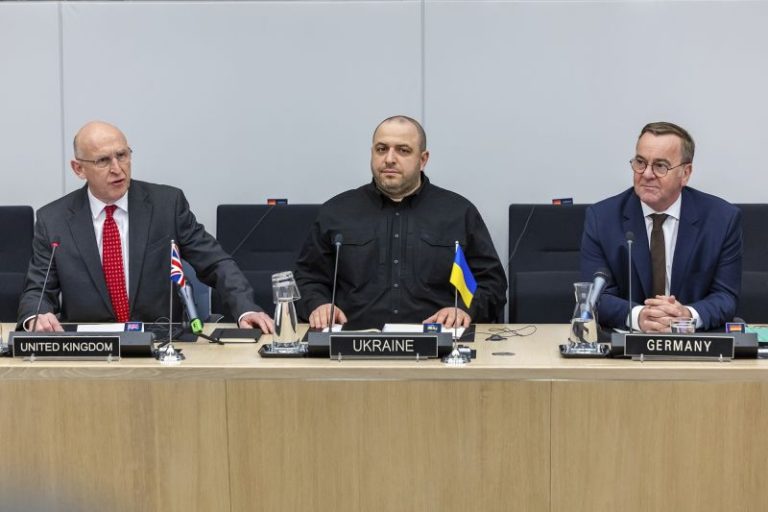Ukraine’s key allies are meeting in Brussels on Friday with a noticeable absence at the table: US Defense Secretary Pete Hegseth, who is only attending virtually.
The Ukraine Defense Contact Group, which was created by former US Defense Secretary Lloyd Austin during the Biden administration, is a group of roughly 50 nations that meet regularly to discuss bolstering military support for Ukraine.
It will mark the first time a US defense secretary has not attended the meeting in person since the group was established in 2022 just months after Russia’s full-scale invasion of Ukraine, which comes amid a series of policy shifts by the Trump administration seen as moving closer to Moscow.
Top Trump official Steve Witkoff arrived in St. Petersburg on Friday for negotiations with Russia, according to the Kremlin.
Russian state media and Axios reported that Witkoff is expected to meet Russian President Vladimir Putin later on Friday, but the Kremlin spokesman declined to comment on reports of a possible meeting.
Meanwhile in Brussels, the Ukraine Defense Contact Group will be chaired by British Defense Secretary John Healey for the second time, alongside German Defense Minister Boris Pistorius.
Pistorius said ahead of Friday’s meeting that it was the Trump administration’s decision to attend virtually and was “not his business” to comment on the signal that sends.
Speaking in Berlin earlier this week, Pistorius said: “There is a new unpredictability in our transatlantic relations.”
“The United States keep up their commitment to NATO but they quite rightly demand a stronger European contribution in the alliance,” Pistorius, who is widely expected to remain in his post in the new German coalition government, said Wednesday. “We will do this together with our European partners and NATO allies, and we will have to provide significantly more leadership as we go along.”
Ahead of the meeting in Brussels, the British defense minister offered strong words of support for Ukraine and called for putting “even more pressure on Putin.”
“Our commitment is to put Ukraine in the strongest position to protect Ukraine’s sovereignty and deter future Russian aggression,” Healey said in a statement.
Germany will provide a further €11 billion ($12.5 billion) in military support to Ukraine through 2029, including IRIS-T mobile air defense missile systems and PATRIOT missiles, Ukraine’s defense minister said Friday from Brussels. The United Kingdom and Norway will also jointly give an additional $589 million in military aid, to provide maintenance to vehicles and hundreds of thousands of drones.
Air defense is Kyiv’s priority, Ukrainian President Volodymyr Zelensky said ahead of the meeting.
“We just need to address the shortage of air defense systems to make our sky protection stronger,” Zelensky said. “Our partners can help with this and also speed up the implementation of all agreements reached earlier. Patriots that remain unused in storage with our partners should be protecting lives.”
Ukraine’s military chief Oleksandr Syrskyi told Ukrainian media on Thursday that Russia has “already begun” its new offensive against the Sumy and Kharkiv regions.
Meanwhile, a new United Nations report revealed this week that Ukraine experienced a significant increase in civilian casualties from Russian attacks in March.
The number of civilian casualties was 50% higher than the previous month, with at least 164 people killed and 910 injured in March, the UN Human Rights Monitoring Mission in Ukraine said.

